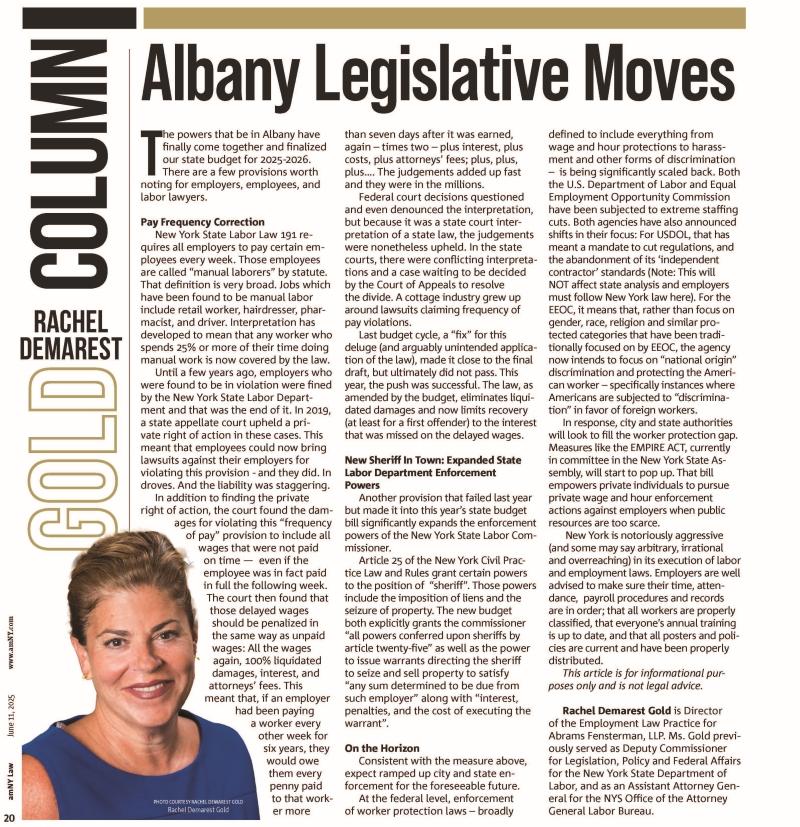The Centers for Medicare and Medicaid Services (CMS) has announced final changes to the so-called “Anti-Markup Rule”, which governs when a physician (or his/her group) or other supplier can bill Medicare the full physician fee schedule rate for diagnostic testing which such physician (or his/her group) orders. The Anti-Markup Rule is currently effective for pathology testing and will become effective for all other diagnostic testing on January 1, 2009.
Unlike the federal “Stark” Law, the Anti-Markup Rule applies to all diagnostic tests (including, without limitation, x-rays and pathology testing, but excluding clinical diagnostic laboratory tests which are governed by other billing rules).
The Anti-Markup Rule provides that when a physician or supplier bills for the professional component and/or the technical component of a diagnostic test which was ordered by that billing physician or supplier, and such ordering physician or supplier either (1) purchases the diagnostic test from an outside supplier, or (2) arranges or permits the test or interpretation to be performed at a site other than the office of the billing physician or supplier, then that ordering physician or supplier may only bill Medicare an amount equal to the lowest of the following: (a) the performing supplier’s net charge to the billing physician or supplier, (b) the billing physician or other supplier’s actual charge, or (c) the fee schedule amount for the test that would be allowed if the performing supplier billed directly.
Assuming the billing physician (or his/her group) ordered the test, such physician (or his/her group) must now satisfy one (1) of two (2) alternative tests in order to bill Medicare the full fee schedule rate for such test and/or interpretation (and thereby avoid the payment restrictions set forth in the Anti-Markup Rule). In enacting these two alternatives tests, CMS determined that when the physician supervising or performing the test and/or interpreting the test “shares a practice” with the party that ordered the test and is billing for it, then a proper and sufficient “nexus” and element of control is present to justify not applying the Anti-Markup Rule.
Alternative # 1 – The “Substantially All” Test
Before enactment of the final rule, CMS had previously alluded to promulgation of a requirement that the supervising/performing physician provide professional services exclusively on behalf of the billing practice or supplier in order for him/her to have the necessary nexus with the billing physician (or his/her group) to avoid imposition of the Anti-Markup Rule. The newly enacted changes, however, relax the previously-proposed standard and now provide that a physician has a necessary nexus if he/she provides “substantially all” of his/her professional services for that billing practice. To satisfy this “substantially all” requirement, the physician must dedicate at least seventy-five percent (75%) of his/her total professional time to working on behalf of the billing practice or supplier (regardless as to whether he/she works part-time or full-time for such practice, and even if he/she works for others). This test is consistent with the 75% rule that physicians and attorneys have become accustomed to in determining whether a practice constitutes a true “group practice” for purposes of meeting certain Stark Law exceptions.
Under this new alternative test (and provided the supervising or performing physician, as applicable, provides “substantially all” of his/her professional services on behalf of the billing practice or supplier), the diagnostic test and interpretation can be performed at any location.
This test is satisfied if the billing physician (or group) or other supplier has a reasonable belief at the time it submits a claim that: (1) the performing physician has furnished substantially all (i.e., at least 75%) of his/her professional services through the billing physician (group) or other supplier for the period of twelve (12) months prior to and including the month in which the service was performed, or (2) the performing physician is expected to furnish substantially all (i.e., at least 75%) of his/her professional services through the billing physician (group) or other supplier during the following twelve (12) months (including the month in which the service is performed).
Alternative # 2 – The “Site of Service” Test
Prior to the final rule, CMS had provided that the Anti-Markup Rule was inapplicable if the billed component of the diagnostic test (i.e., the professional component and/or the technical component) was performed in the ordering physician’s (or group’s) office space, or in space that is directly contiguous with the billing practice’s office.
In the newly enacted rule, CMS has again relaxed its previously-promulgated standard so that the Anti-Markup Rule is now inapplicable if the billed component of the diagnostic test (i.e., the professional component and/or the technical component) is performed in the “same building” in which the billing physician (or group) or other supplier regularly furnishes patient care. The term “same building” is defined in the Anti-Markup Rule in the same way as it is defined in the Stark Law.
To satisfy this alternative test, the physician supervising or performing the technical component must be an owner, employee or independent contractor of the billing physician (or group) or other supplier, and the physician performing the professional interpretation must be either an employee or an independent contractor.
Additionally, the new changes to the “site of service” test clarify (1) that the billing physician (group) or supplier may have more than one office, and (2) that such office is defined as space in which the ordering physician or other ordering supplier regularly furnishes patient care, and, with respect to groups (i.e., physician organizations), is the space in which the ordering physician performs substantially the full range of patient care services that the ordering physician provides generally (i.e., as opposed to those services which the group itself provides generally). This latter clarification eases the concerns of multi-specialty practices which do not provide the full range of their patient care services under a single roof.
* * *
For more information, please call any of the attorneys in our firm’s health law department at (516) 328-2300 or (212) 279-9200.





